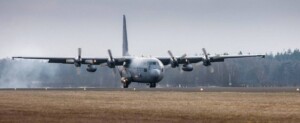UNDP helps expand wheat cultivation in Sudan’s White Nile
In a bid to boost wheat production and create jobs for residents and South Sudanese refugees, the UN Development Programme (UNDP) has spear-headed a commercial wheat farming project in White Nile state, contributing to efforts to tackle food security and livelihoods in the area that hosts more than 260,000 refugees.
The UNDP-funded initiative, the first of its kind in the area, yielded about 202 metric tonnes of wheat to boost local wheat production and reduce wheat import dependence, the UN Office for the Coordination of Humanitarian Affairs (OCHA) in Sudan says in its latest Situation Report.
 Sudanese farmers working to harvest more than 200 tons of wheat in White Nile state, with machinery provided by Sweden and he Netherlands (UNDP)
Sudanese farmers working to harvest more than 200 tons of wheat in White Nile state, with machinery provided by Sweden and he Netherlands (UNDP)
In a bid to boost wheat production and create jobs for residents and South Sudanese refugees, the UN Development Programme (UNDP) has spear-headed a commercial wheat farming project in White Nile state, contributing to efforts to tackle food security and livelihoods in the area that hosts more than 260,000 refugees.
The UNDP-funded initiative, the first of its kind in the area, yielded about 202 metric tonnes of wheat to boost local wheat production and reduce wheat import dependence, the UN Office for the Coordination of Humanitarian Affairs (OCHA) in Sudan says in its latest Situation Report.
In terms of main staple foods and food security, wheat, sorghum, and millet are the three main crops, according to the Sudan Staple Food Market Fundamentals by FEWS NET.
Sudan produces surplus sorghum, is self-sufficient in millet, and is structurally deficit in wheat. For import-dependent crops like wheat, maize and rice, Sudan usually imports around 70 to 80 per cent of requirements, as local production is below the national demand and consumption.
The 2019 FAO Crop and Food Supply Assessment Mission to Sudan report issued in February 2020 says that Sudan’s wheat production this year is estimated at 726,000 tonnes, about 25 per cent of the country’s total utilization of wheat (2.9 million tonnes).
This year Sudan needs to import at least 2.2 million tonnes of wheat to meet the country’s requirements.
With irrigation canals and modern farming technology, UNDP is exploring and testing ways to increase domestic production in new, conflict-impacted locations, aiming to create jobs, foster peace and improve food supply.
Radio Dabanga’s editorial independence means that we can continue to provide factual updates about political developments to Sudanese and international actors, educate people about how to avoid outbreaks of infectious diseases, and provide a window to the world for those in all corners of Sudan. Support Radio Dabanga for as little as €2.50, the equivalent of a cup of coffee.












 and then
and then